In the Middle worked with Lucy and Ashley from Marston’s to implement a massive shift in the culture and behaviour of their staff at their Burton brewery.
Energy consumption is tricky to tackle across a 14 hectare brewery site. However, the senior team at Marston’s knew their people could do more by taking responsibility and making some small changes to the way they work but they needed to get everyone on board. The internal communications team at Burton collated some eye watering stats that I witnessed first hand on my initial brewery tour. This bustling brewery was wasting significant amounts of energy and water every day.
The bold objective for the campaign was to help reduce energy consumption by 20% in 5 years, saving a whopping £410,000 in the process. We aimed to change people’s habits for good and encourage them to take responsibility for their actions.
It was clear that the messaging needed to be on a level with the staff on the shop floor. The creative needed to be relatable and it was clear to me that everyone at the brewery had the right tools for the job, a hand. No special equipment was needed to implement these changes. Simply switch the light or tap off when you are done. I wanted the messaging to be bold and hard hitting.
You’re the right tool for the job.
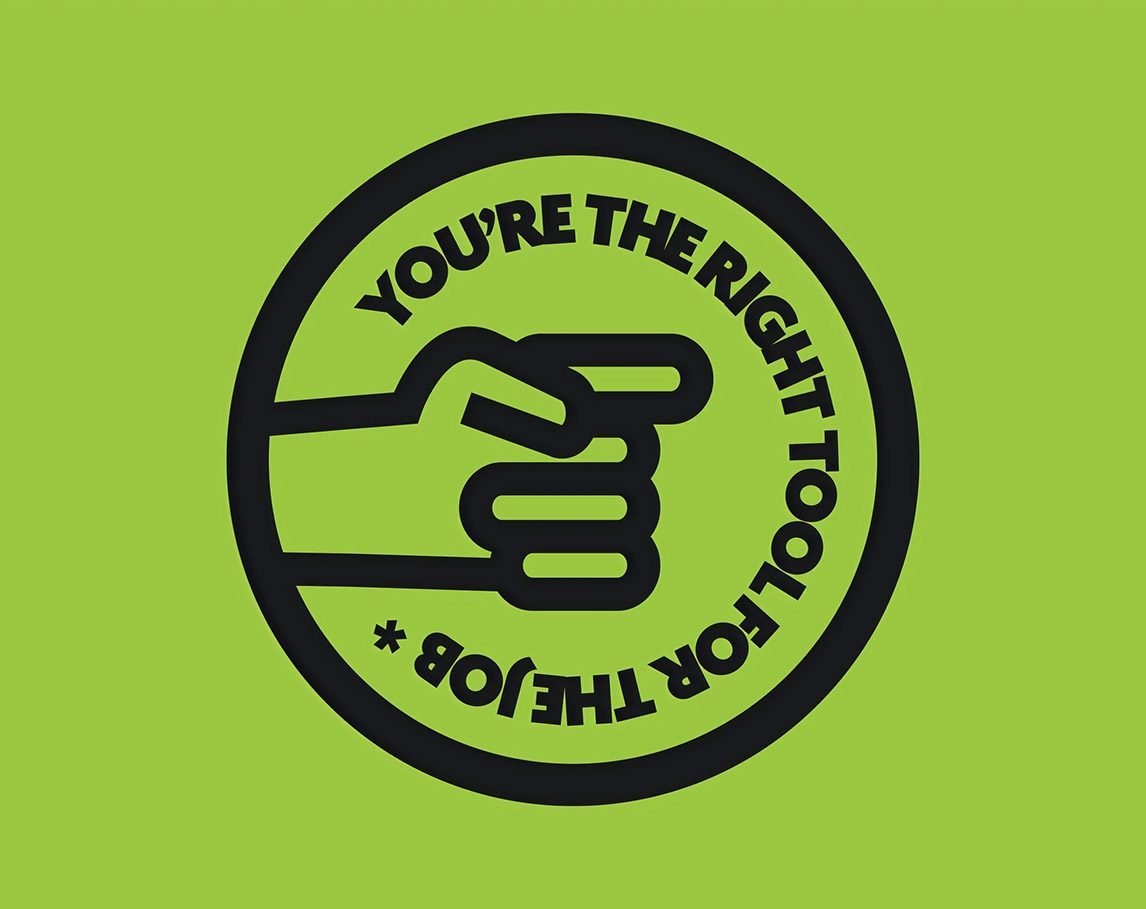
The task was simple to create an attention-grabbing campaign for a hard-to-reach audience. You’re the right tool for the job puts ownership in our people’s hands right from the outset, which makes the most of our ‘people power’ at the brewery. It’s bold, grabs attention and spans across the entire site. The idea is that if everyone does their bit, it’ll make a big difference collectively to the environment and the amount of money Marston’s spends on energy.
My approach was simple, show the staff how much waste was happening and why that was a problem. This was achieved by producing something that was relatable – turning facts into an equivalent to pints down your local. Daily water bills costs of £733 not that relatable to the person on the shop floor but if you put that into context of thats equivalent to 244 pints of beer down the local it’s relatable to every person on the shop floor.
For the campaign we mixed print, digital and face-to-face internal briefings to meet the needs of our diverse audience. Importantly, these materials also cover everything from instant reminders at the source, to raising general awareness and longer-term progress updates. The materials included: guides, posters and daily reminders. Being a brewery they get through plenty of beer barrels each day we explored printing directly onto the barrels so messaging really stood out. Old beer barrels, painted in campaign colours and featuring big stats, made use of everyday items around the brewery.
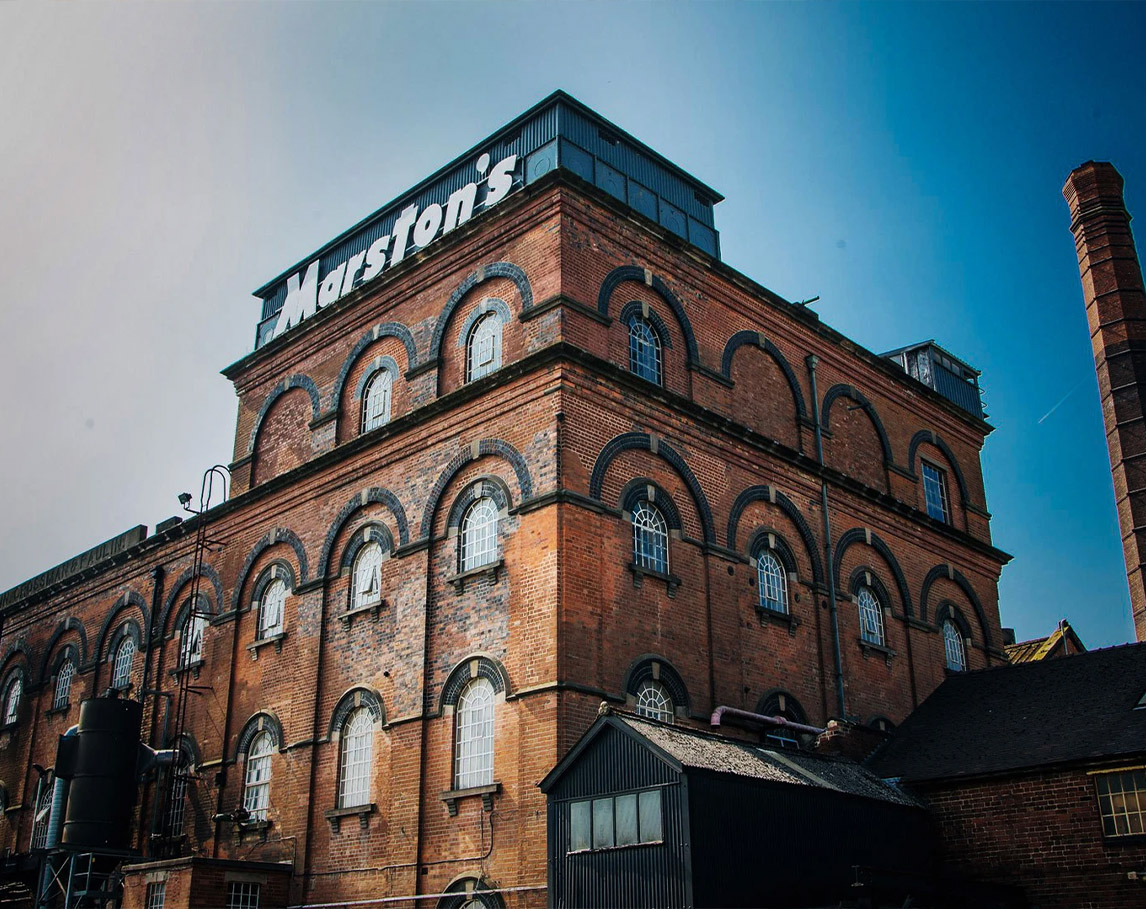
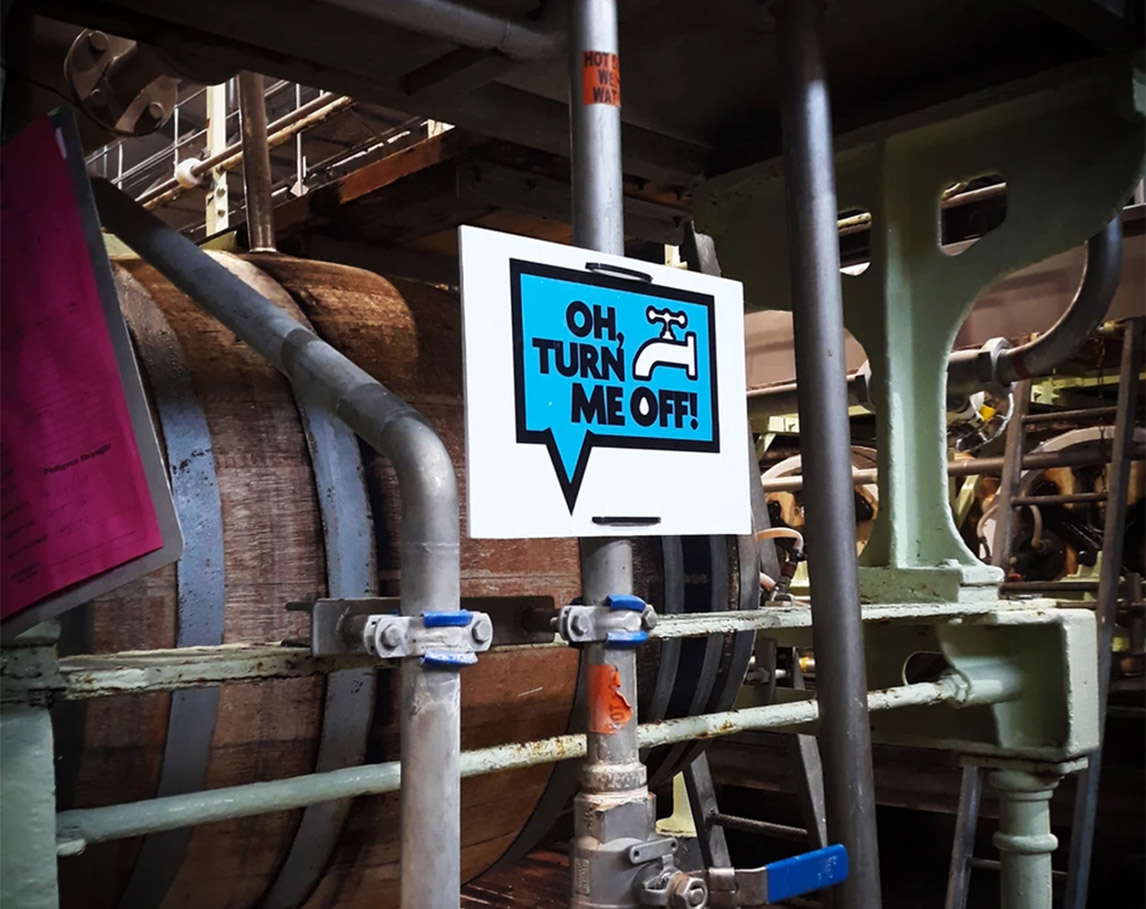
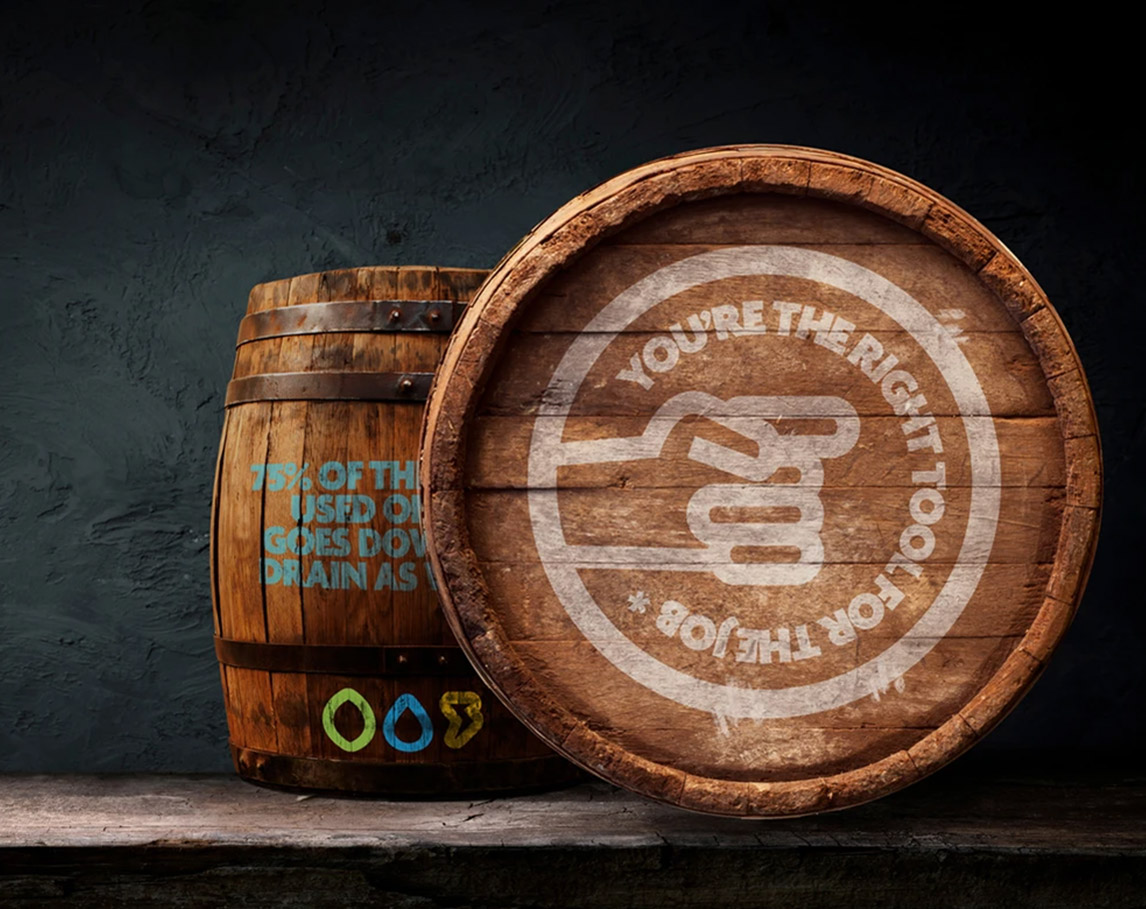
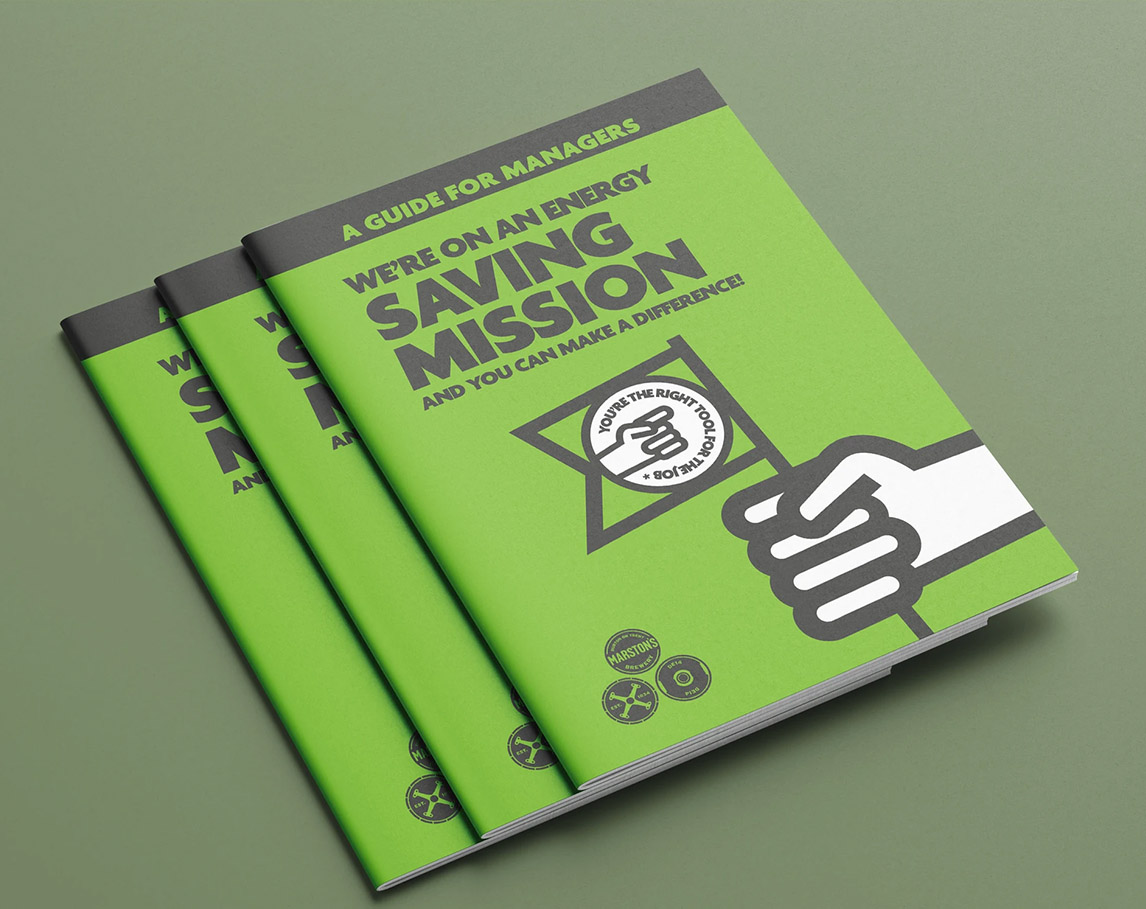
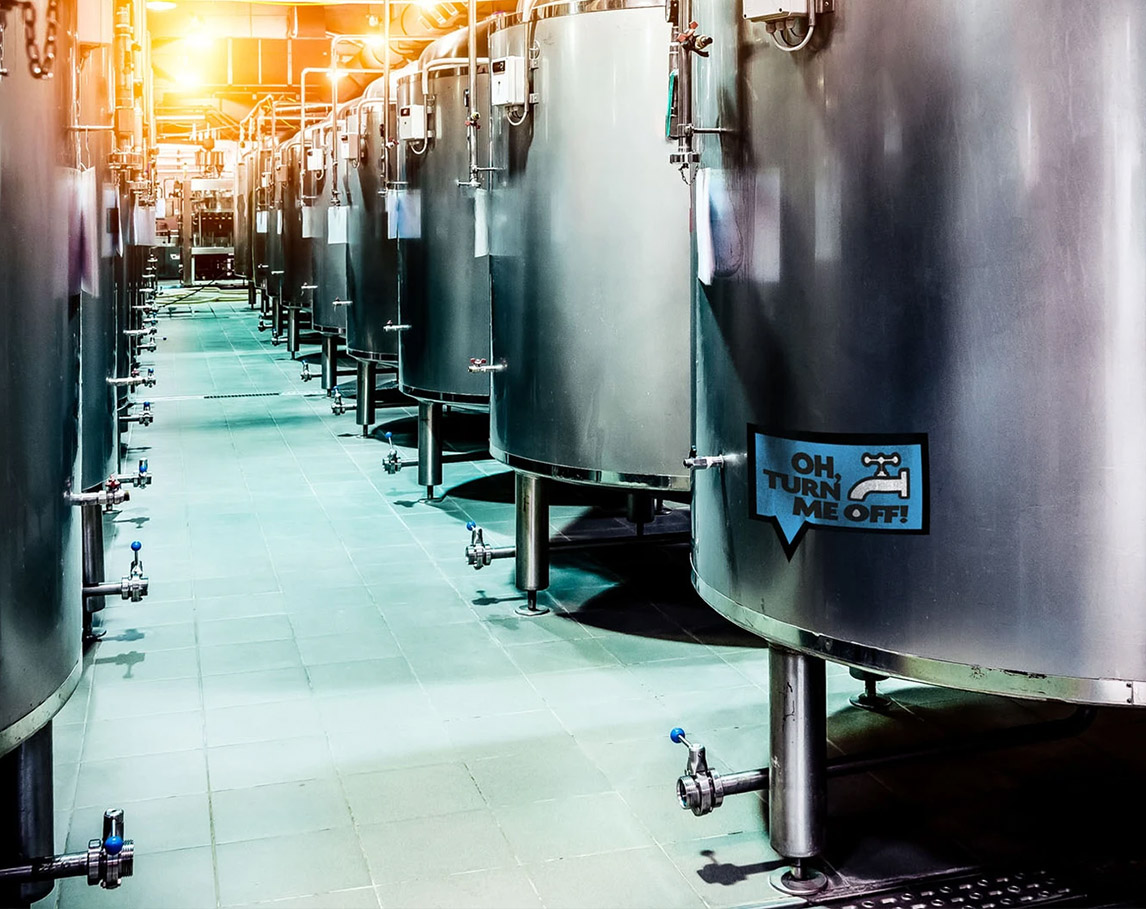
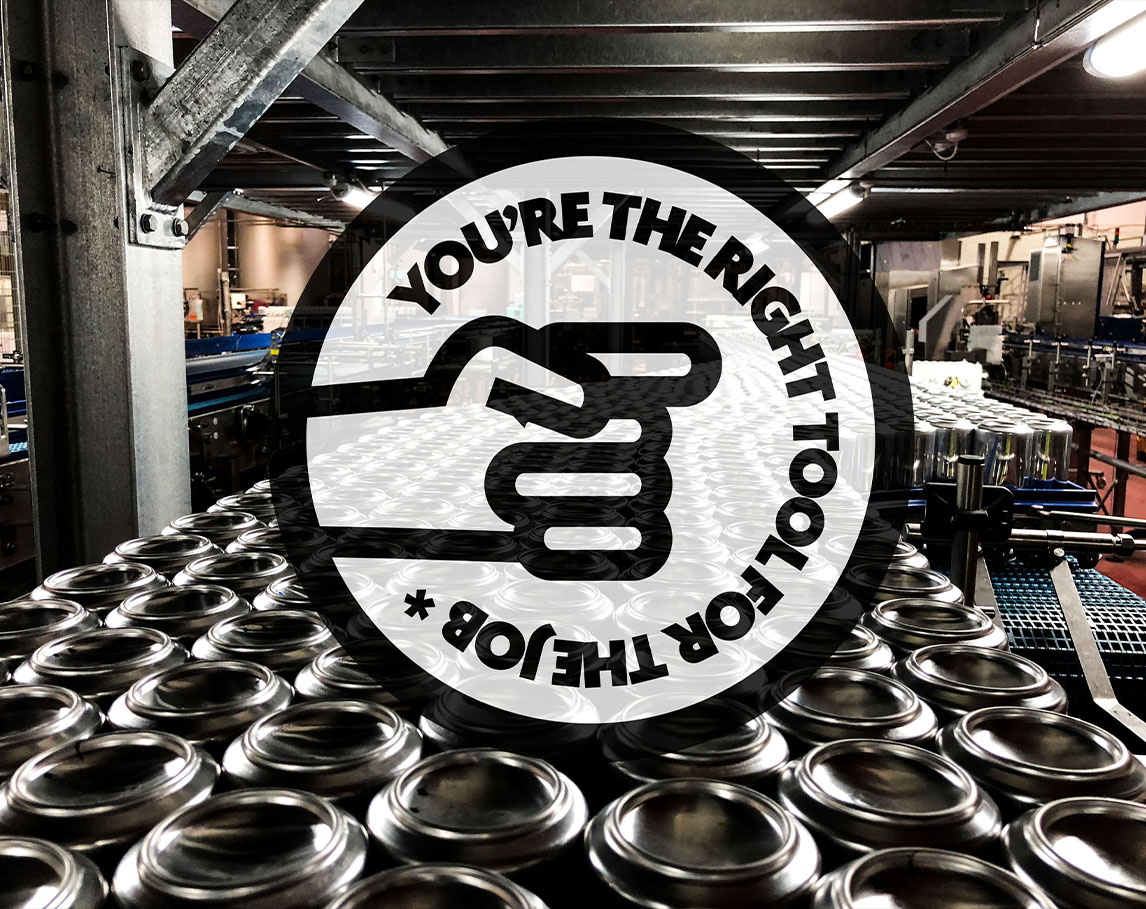
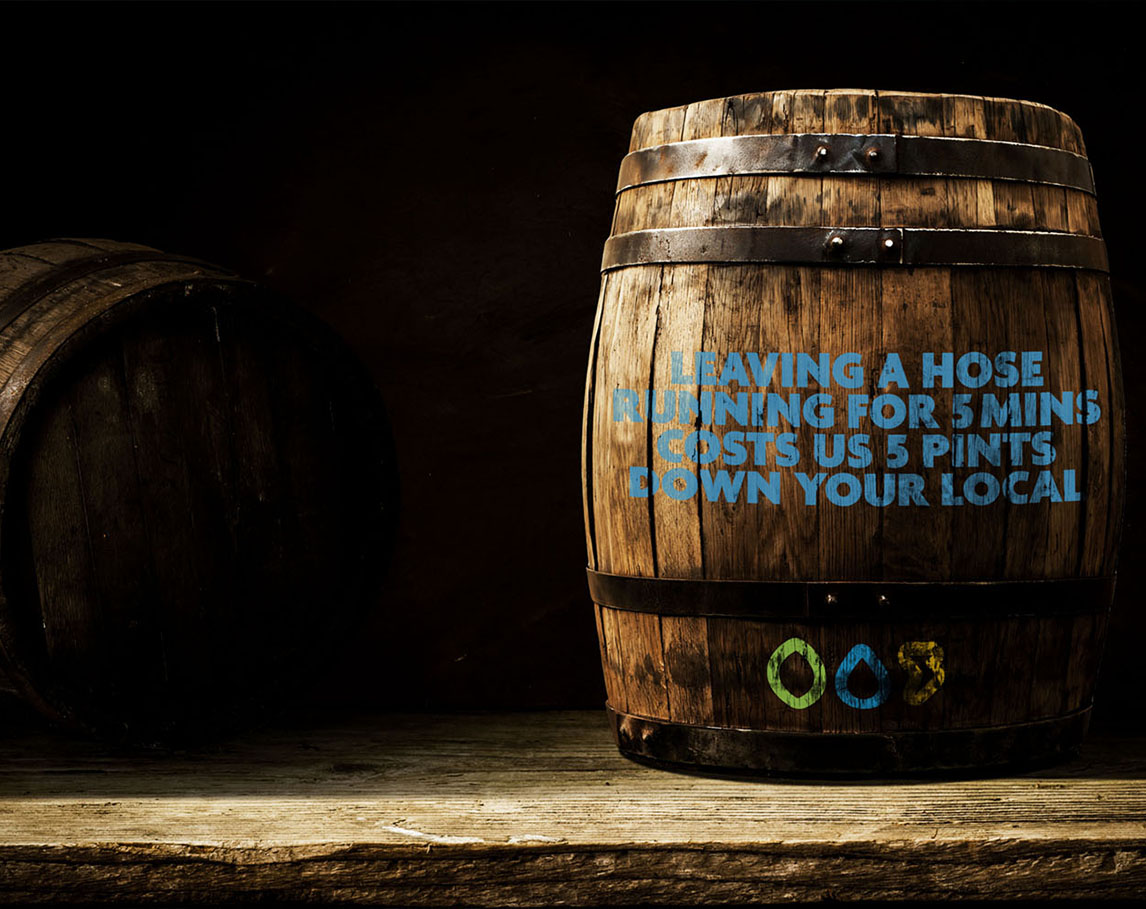
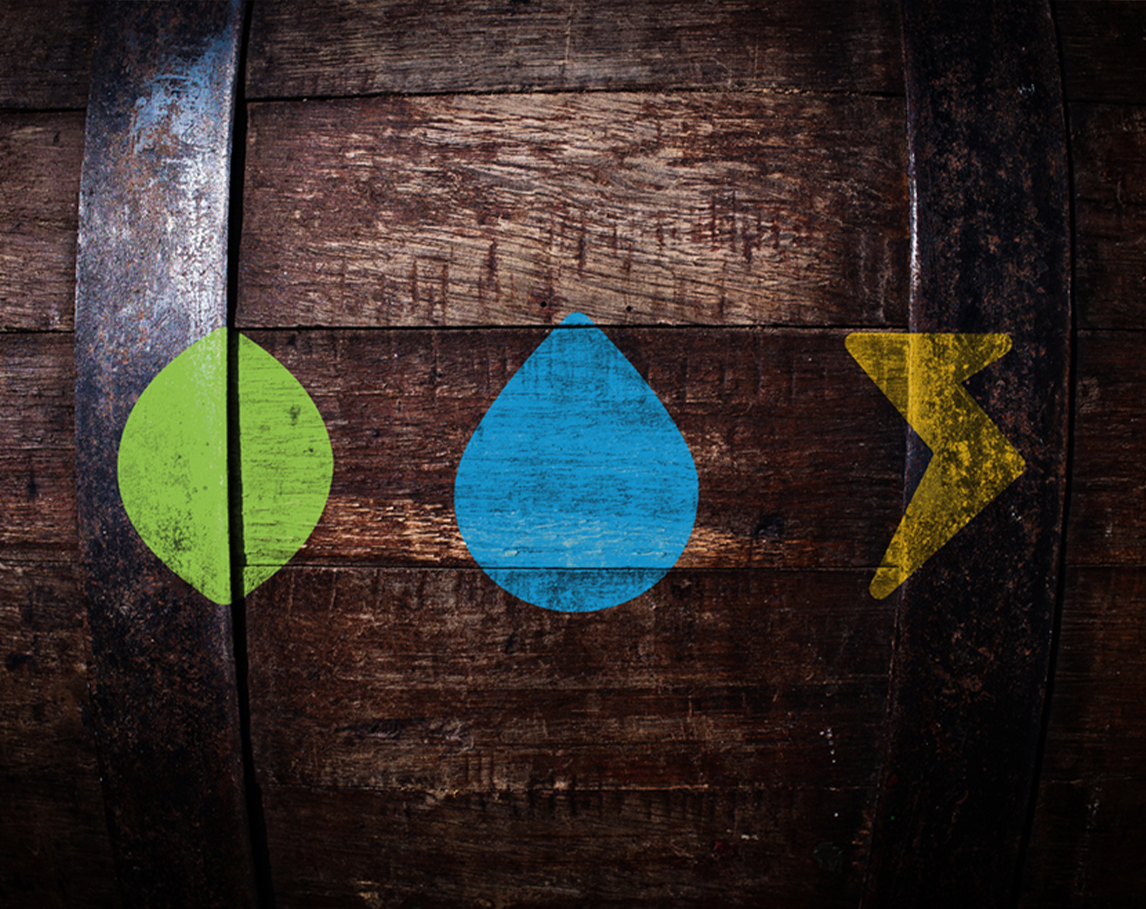
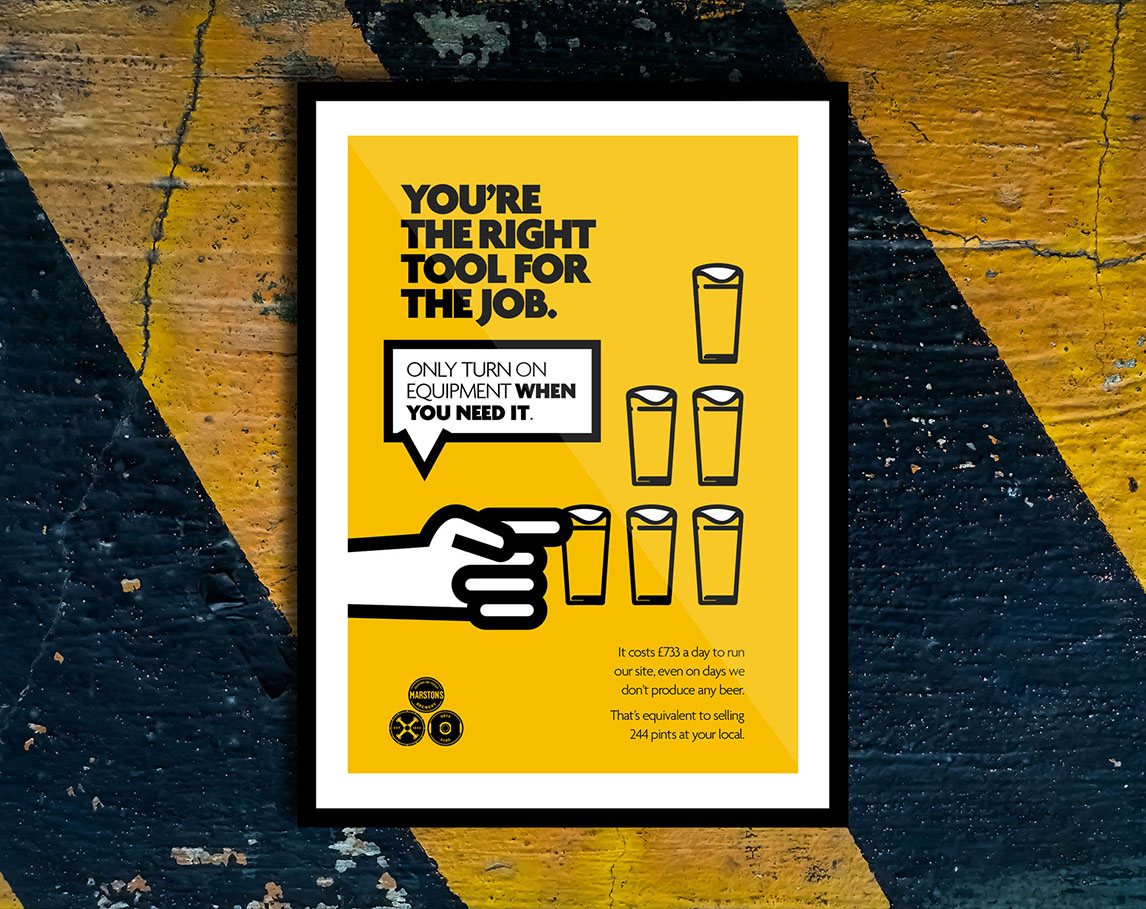
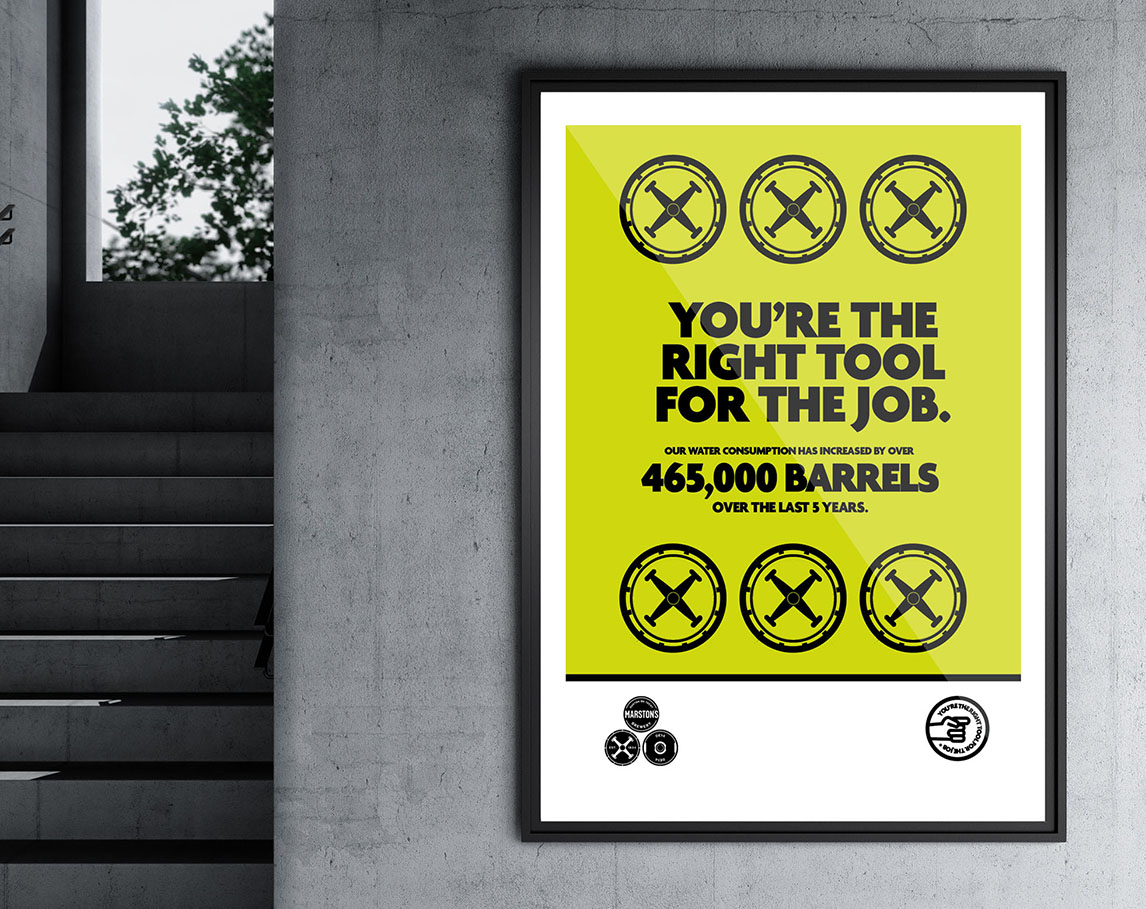
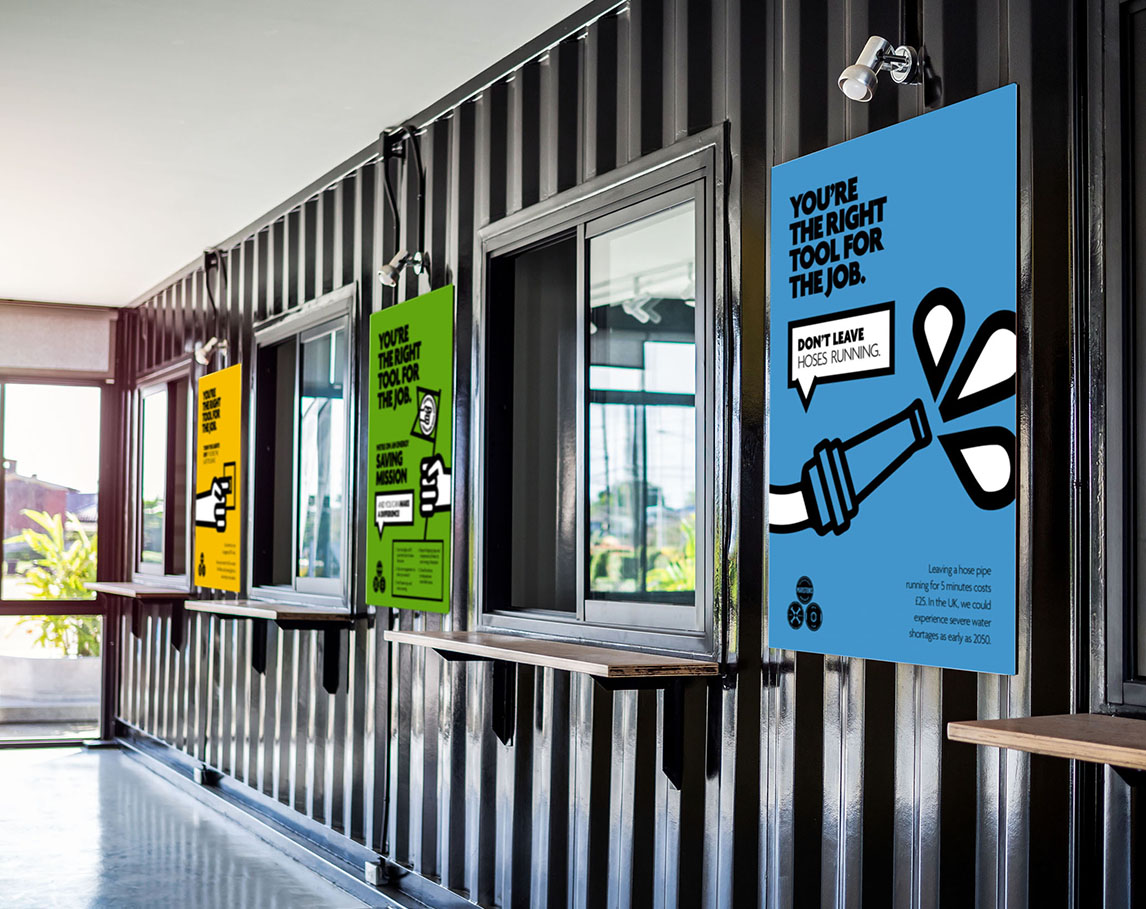
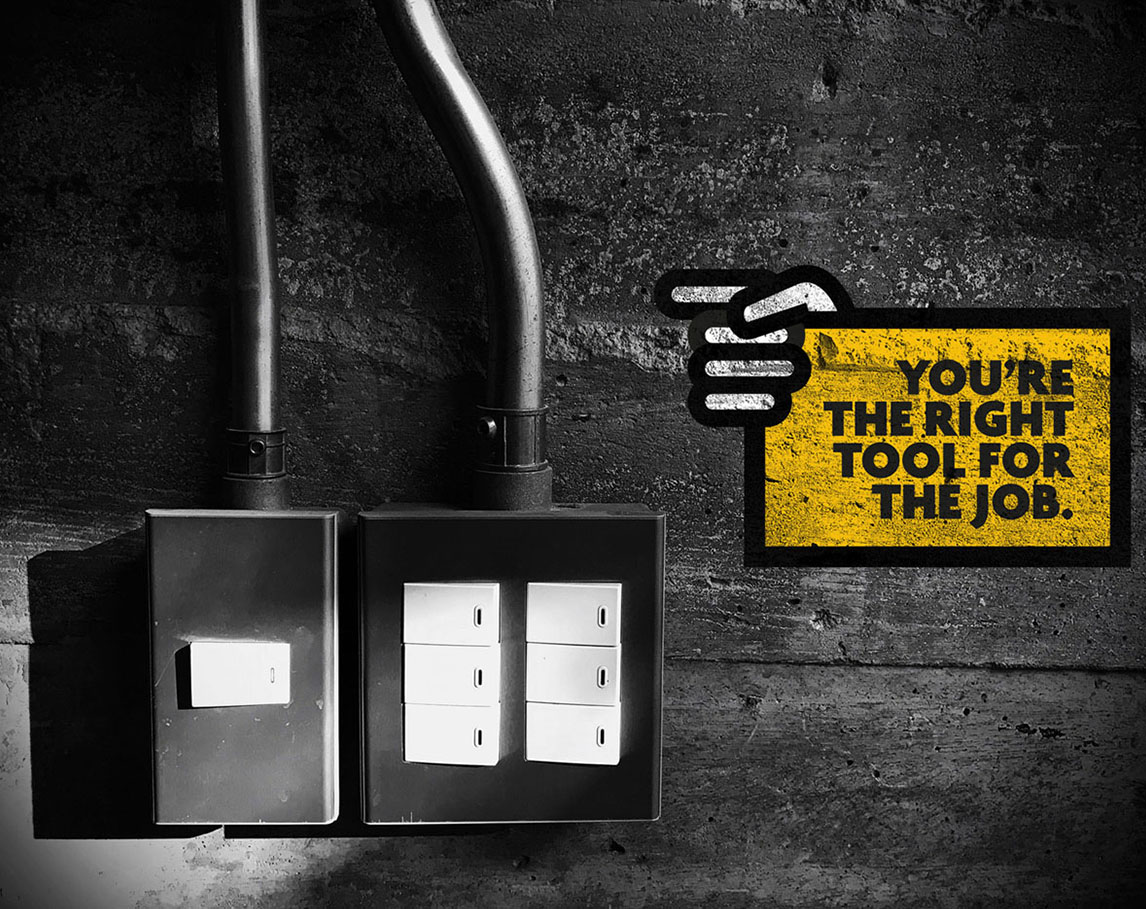
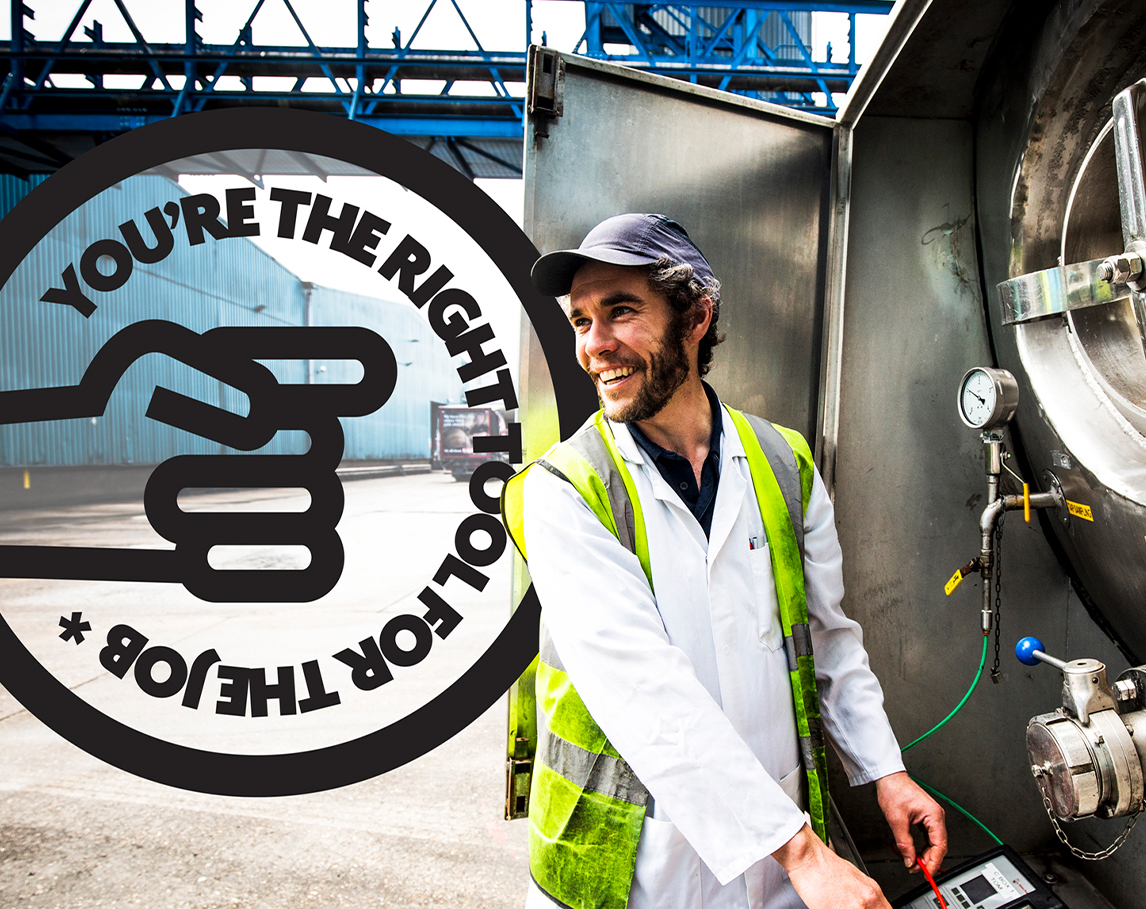
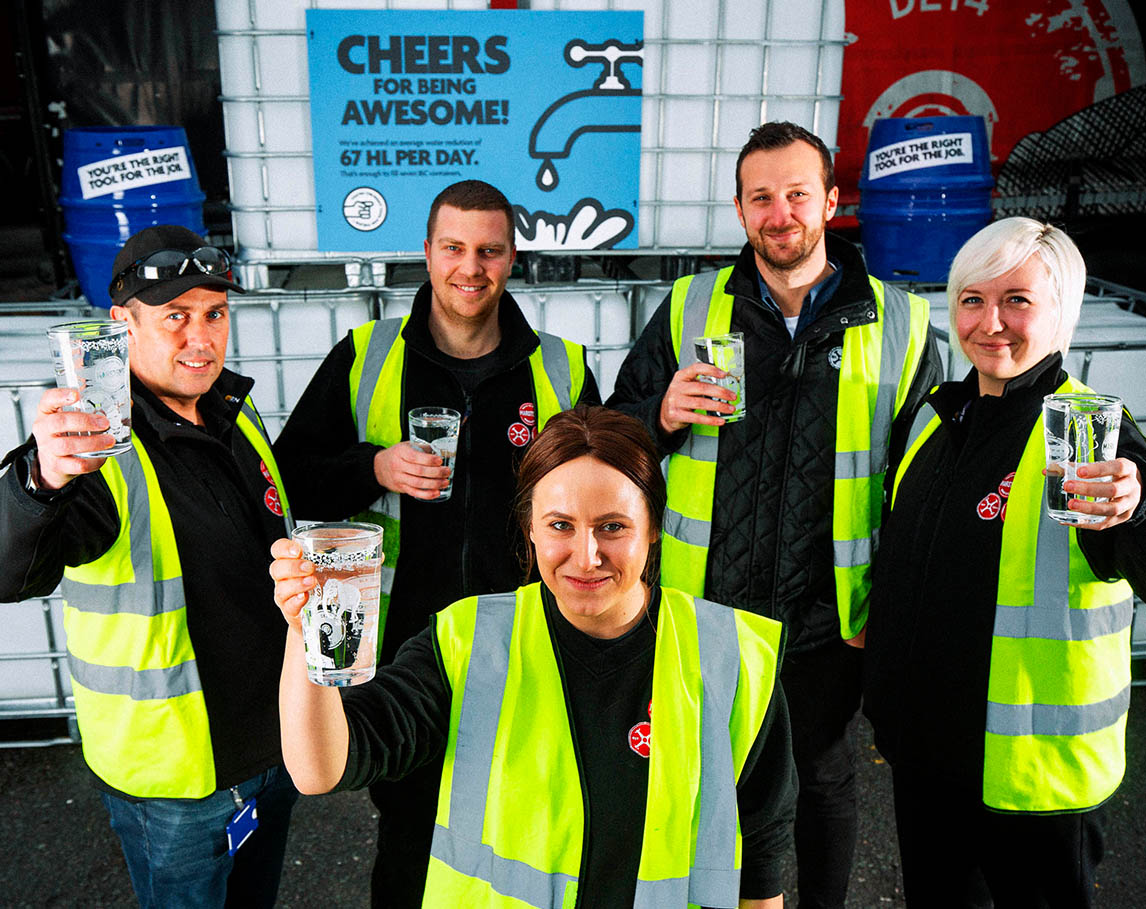
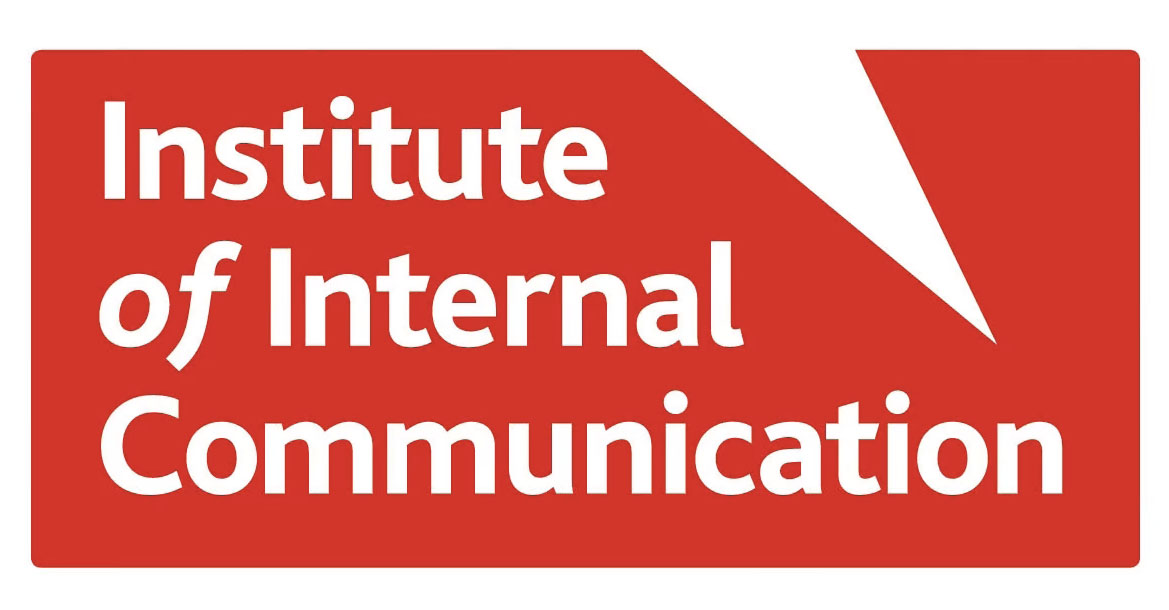
The project was a resounding success both internally and externally. It was so impactful that the campaign earned an Institute of Internal Communication Award for Best Change/Transformation Communication. More importantly, it significantly engaged staff, serving as a key catalyst for driving change within the business.
The Results
The campaign was exceptionally well-led, focusing on encouraging staff to change their behaviors while, more importantly, saving Marston’s a substantial amount of money. Within the first two months, the brewery saw a significant reduction in wasted energy, with electricity usage decreasing by an average of 1,016.66 kWh per day. Water consumption also dropped dramatically by 9.08 m³ per day—around 9,000 liters. To put that into perspective, a single day’s water savings could fill nearly 16,000 pint glasses! It was a fantastic start with impressive progress.
Each team nominated Energy Champions to help spread awareness and make it easier to report issues like dripping taps. We also plan to share best-practice case studies from the brewery through our Group-wide communication channels. This not only celebrates the team’s achievements but also inspires others across Marston’s to follow their lead.
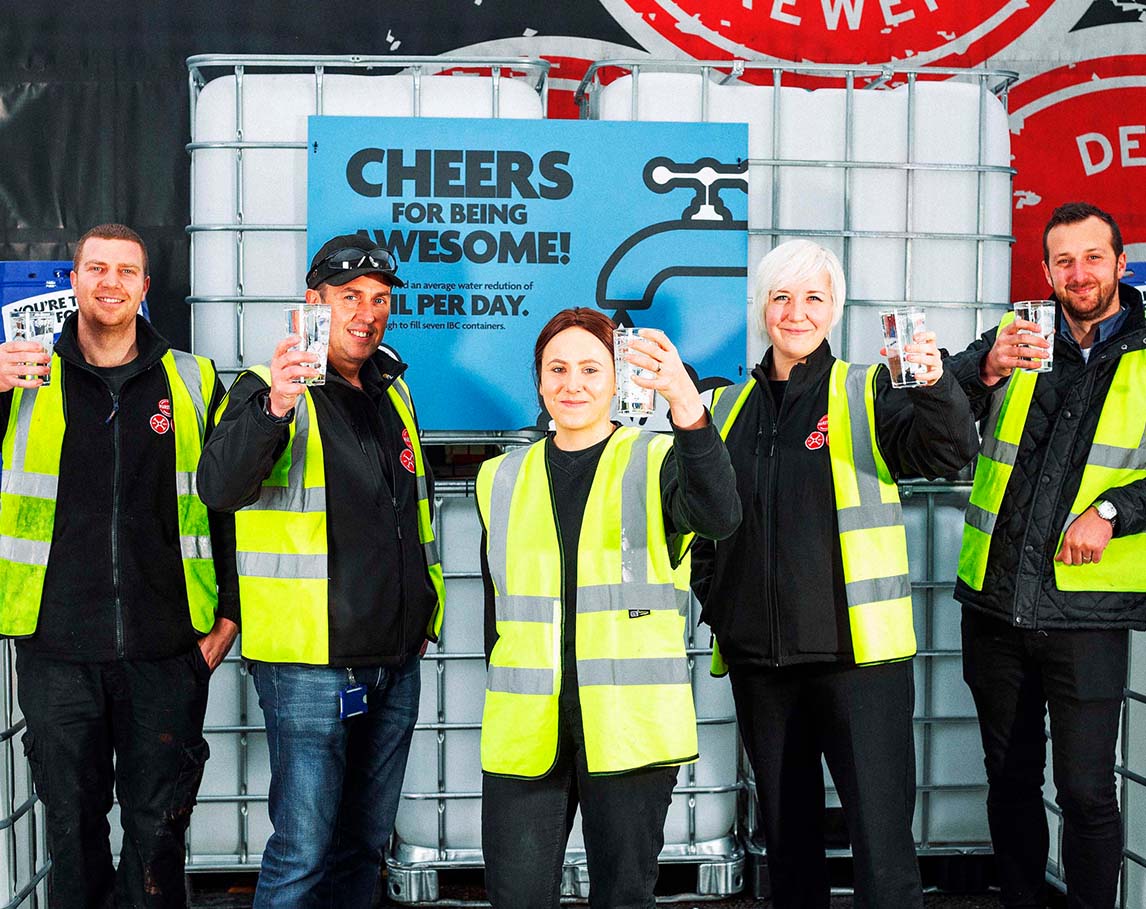
“You’ve elevated the campaign and presented the stats in a way that’s easy to understand—it’s approachable and highlights things everyone can relate to without being too technical.”
Ashley, Marston’s Brewery


